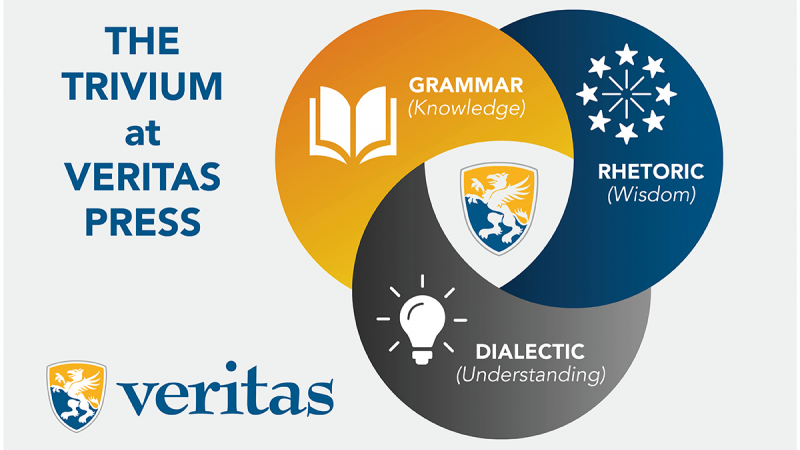The Trivium & Classical Christian Education with Veritas

Classical Christian education is a timeless educational philosophy that delves into the past to uncover its profound insights and wisdom, then skillfully applying this knowledge in a relevant and modern context. At Veritas, this method of education trains students in critical thinking and reasoning—all based in Christian truth and taught through a biblical worldview. Classical education follows a structured framework known as the Trivium, comprising three interconnected stages: Grammar, Logic (Dialectic), and Rhetoric.
Grammar: Building a Foundation
In the elementary stage of classical education, often referred to as the "Grammar" phase the focus is on committing facts to memory. Young children naturally excel at memorization, forming a foundation for deeper understanding later on. Classical education enhances this process with engaging methods like songs and rhymes, making learning both effective and enjoyable for children.
Logic: Nurturing Inquisitive Minds
In the middle school stage of classical education, known as the “Logic” or “Dialectic” stage, students are known for their curiosity and for questioning everything. Classical educators nurture curiosity by teaching effective argumentation, teaching students to skillfully organize information into logical, compelling arguments. At this stage, students also cultivate strong critical thinking skills. This stage nurtures sharp, discerning minds.
Rhetoric: Pursuing Wisdom
In the high school phase of classical education, “Rhetoric,” the focus is on the pursuit of wisdom. Rather than merely holding beliefs, students are taught to effectively and graciously articulate those beliefs to others. This stage combines all three parts of the Trivium—students know the facts, present them logically, and do so with grace and persuasion.
Christian Perspective in Classical Education
Through the Trivium, knowledge lays the foundation for understanding, and understanding, in turn, paves the way to wisdom. And at Veritas, all these stages are guided by the light of the Gospel. It's a holistic approach that equips students with the skills to navigate a complex world with insight and eloquence.
To learn more, download our short eBook: “Discovering Online Classical Christian Education.”






